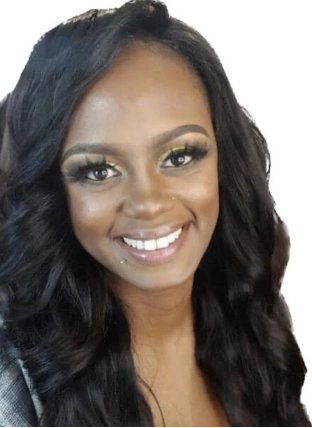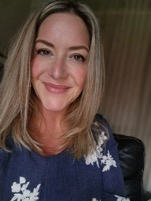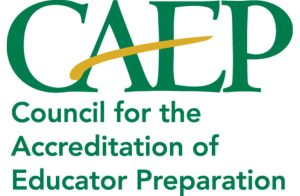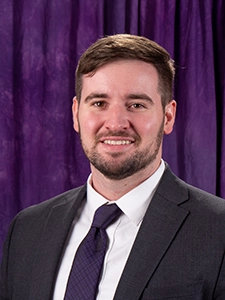What is School Counseling?
School counselors work in educational settings to support students’ academic, social/emotional, and postsecondary development. They help students set and reach goals, navigate intrapersonal and interpersonal challenges, explore college and career options, and collaborate with a range of educational and non-educational partners to contribute to a positive school climate.
More information about school counseling can be accessed through the following hyperlinks: The Role of the School Counselor and American School Counselor Association
What degree /major do I need for this program?
Students from all academic backgrounds are welcome to apply. An undergraduate degree in Human Development, Psychology, or a related field may be especially beneficial.
What degree will I earn in this program?
Graduates of this program earn a Master of Science in Education (M.S.Ed.) in School Counseling. Students may also choose to complete the Certificate of Advanced Study (CAS) for those seeking additional coursework needed for professional certification.
Is the program accredited?
Yes. The College of Education and School Counseling program is accredited by the Council for the Accreditation of Educator Preparation (CAEP). Niagara University is accredited by the Middle States Association.
What are the strengths of the program?
- Small Class Sizes – 11:1 student-to-faculty ratio for personalized attention
- Strong School Partnerships – Connections with Western New York (WNY) schools for high-quality field placements
- Accredited & Recognized – CAEP-accredited and approved by the New York State Education Department (NYSED)
- Flexible Scheduling – Evening, in-person, and hybrid/online course options
- Mission-Driven – Rooted in the Vincentian tradition with a focus on social justice, advocacy, and ethical practice
- Certification Ready – Prepares graduates for New York State Initial Certification (48 credits), with an optional Certificate of Advanced Study (CAS; 12 credits) for professional certification
What are some key courses?
Examples include:
- Counseling Techniques
- Multicultural Counseling
- Foundations & Ethics in School Counseling
- Career Counseling & Planning
- Group Counseling
- Organization & Administration of the School Counseling Program
- Practicum
- Internship I and II
For more information about our program: Master’s Program Handbook 2025-2026 | Niagara University College of Education Department of School Counseling
How many credits is the program?
- 48 credits: Masters degree which meets course requirements to apply for New York State’s Initial Certification
- 12 credits: Coursework associated with the Certificate of Advanced Study (CAS) may be completed to be meet the 60-credit hour requirement for professional certification eligibility.
Can I work while completing the program?
Yes. Niagara’s flexible scheduling makes it possible for students to work while pursuing their degree. Many of our students balance full-time employment with part-time or full-time enrollment.
What hands-on experience is offered?
Students gain practical experience through a 100-hour practicum and 600 internship hours in K–12 school settings. All placements are supervised by certified school counselors and provide opportunities to apply classroom learning in real-world settings.
Do I have to find my practicum and internships on my own?
No. Program faculty and field placement coordinators work directly with local school districts to arrange placements. However, you will be involved in the process by sharing your preferences, such as location and school level.
Where will I complete my internship?
Placements are arranged in local elementary, middle, and high schools across Western New York. Niagara University’s partnerships with area school districts make securing placements straightforward and supportive.
What is the current job trend for school counselors?
According to the U.S. Bureau of Labor Statistics, employment of school and career counselors is projected to grow 5% from 2022–2032, with about 26,600 job openings per year nationwide. Demand is particularly strong in New York and surrounding states.
For more information: School and Career Counselors and Advisors
How will this program set me up for success?
- Prepares you for New York State Initial Certification
- Emphasizes ethical practice aligned with American School Counselor Association (ASCA) standards
- Provides extensive, supervised fieldwork in K–12 schools
- Opens pathways to careers in school counseling, higher education, community programs, and career counseling
Will my degree be recognized outside New York?
Yes, in most states. Because requirements vary, you may need to complete additional coursework or exams depending on the state. Many states accept New York State Education Department (NYSED)-approved degrees, and faculty/advisors will guide you through reciprocity and certification requirements. More information can be accessed through the following hyperlink: State/Territory Certification and Degree Programs.
What certification will I be eligible for after graduation?
Graduates are eligible for Initial Certification in School Counseling in New York State after completing:
- The 48-credit-hour masters program
- Required NYS workshops (Child Abuse, DASA, SAVE)
- Fingerprinting requirements
- School Counselor Content Specialty Test (CST)
How do I earn Professional Certification?
To qualify for Professional Certification in School Counseling in New York State, you must complete:
- A master’s degree and meet Initial Certification requirements
- An additional 12 credits (Certificate of Advanced Study – CAS program)
- Three years of school counseling experience
- One year of mentored experience
What career support is available?
Niagara’s Career Services Center offers:
- One-on-one career coaching
- Mock interviews and job search preparation
- Access to an internship and job database
- Graduate school and licensure guidance
- Lifetime support for alumni
What are the admission requirements?
Information can be found here: Graduate Admissions Requirements
What is the application deadline?
Applications are accepted on a rolling basis. However, applying early is recommended to secure preferred course scheduling and maximize financial aid opportunities.
Is the program full-time? Can I attend part-time?
Yes. Students may choose to study:
- Full-time – 9 or more credits per semester (typically four courses completed, per semester; approximately 2 years to complete the degree)
- Part-time – 6 or fewer credits per semester (typically two courses completed, per semester;approximately 3–4 years to complete the degree)
Note: *Financial aid eligibility requires at least 6 credits per semester.
Does NU offer an undergraduate pathway into this program?
Yes. The 4+2 Program allows qualified NU undergraduates to begin graduate coursework during their junior or senior year, providing a faster path to completing the M.S.Ed. degree.
What graduate assistantships and scholarships are available for counseling students?
Niagara offers over 60 scholarships and graduate assistantship opportunities for well-qualified, matriculated graduate students. These competitive awards may include tuition support, stipends, and service-based opportunities.. For more details, please visit our Graduate Aid Website.
What is the cost of tuition?
The cost of our program can be found here: Tuition and Fees
Is Financial Aid available?
Yes. Niagara provides a range of financial aid opportunities for graduate students, including scholarships, assistantships, federal/state aid, and additional support programs. For more information, you can contact the Financial Aid office or Graduate Financial Aid.













